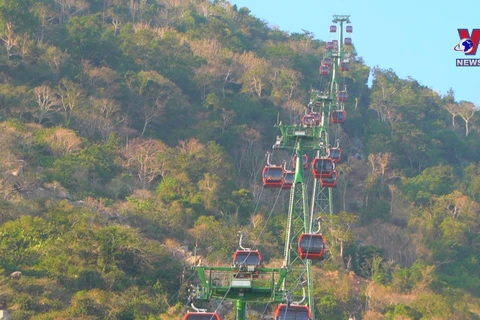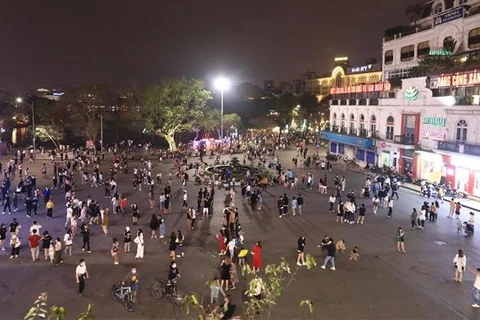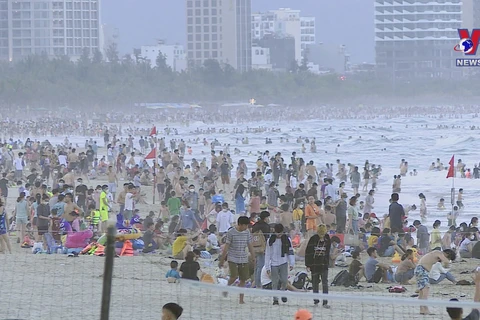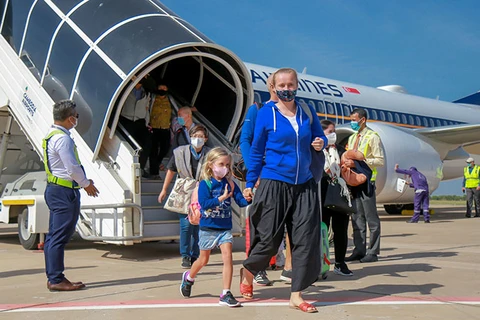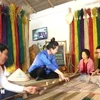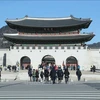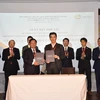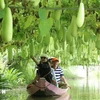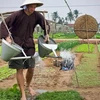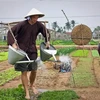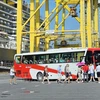 Foreign tourists are eager to visit Vietnam, but have to wait for specific instructions. (Photo: VietnamPlus)
Foreign tourists are eager to visit Vietnam, but have to wait for specific instructions. (Photo: VietnamPlus) Hanoi (VNA) – Although Vietnam has fully opened its tourism sector, the Ministry of Culture, Sports and Tourism has yet to issue official instructions for travel firms, making it difficult for them to make operational plans.
After a long hiatus due to the COVID-19 pandemic, businesses are eager for new tours and awaiting proper guidelines to deliver services.
Do Ngoc Anh, CEO of Mekong Touch Company, said that COVID-19 put the firm into unprecedented difficulties and confusion. Some of its customers tested positive for SARS-CoV-2 right before boarding, leading to tour cancellations and refunds, she said, adding that the situation has caused great difficulties for the company.
Meanwhile, due to the closure of many hotels and restaurants, travel firms have had to change their tour plans, which cause a rise in costs, strongly affecting their profits.
According to the latest regulations of the Ministry of Health, international visitors entering Vietnam only need to show negative SARS-CoV-2 PCR tests or rapid tests, medical declarations, install PC-COVID app, without quarantine measures. Under this favourable policy, the country doesn’t use a vaccine passport like other nations in the world.
However, a number of travel firms specialising in serving foreign tourists said that although many foreign markets, including those in Europe, have opened tourism since last October, they are still cautious and wait for new policies and regulations.
Some have even advised their customers to delay their plans to travel until July as there is still a lack of clear regulations.
Recently, the Ministry of Culture, Sports and Tourism is requesting foreign tourists have medical or travel insurance that covers COVID-19 treatment with a minimum liability of 10,000 USD. Meanwhile, this regulation is not applied in many other countries.
Hoang Nhan Chinh from the Tourism Advisory Council (TAB) said that the Law on Tourism stipulates that travel service businesses must buy insurance for tourists during the tours, exceptingtravelers are already covered by insurance for their entire travel itinerary. Therefore, buying travel insurance is in line with Vietnam law, he said.
He noted that in reality, many countries such as Singapore and Thailand have also requested foreign tourists to pay travel insurance to cover fees for COVID-19 treatment. In Singapore, foreign visitors must pay for travel insurance with minimum liability of 22,000 USD, while health insurance coverage for those who tour Thailand is at least 20,000 USD. Meanwhile, travel insurance for a Schengen visa to Europe must have a minimum value of 30,000 EUR (35,000 USD).
“Therefore, Vietnam’srequirement of a minimum travel insurance of 10,000 USD is reasonable,” Chinh affirmed.
Earlier, the TAB proposed the collection of compulsory tourism insurance, which includes COVID-19 insurance on both inbound and outbound tourists. It aims to ensure the interest and safety of tourists, travel agents as well as local administrations in case of tour cancellation, delay or emergency health circumstances.
Pham Ha, CEO of Lux Group, showed support for the policy, saying travelers’ payment of 30-40 USD for each tour is acceptable, while ensuring Vietnam’s tourism competitiveness in the region.
“Lux Travel included a mandatory clause on travel insurance in contracts with customers participating in the Vietnam Test and Go 2022 tours that are offered for sale on website www.luxtraveldmc.com,” said Ha.
In the context of difficulties due to the pandemic, the business community has expressed hope that the Government ministries will continue tosupport in recovery and development of the green economy. It should continue to conduct dialogues with them to seek ways to attract tourists in a long-term manner. It should also build more sustainable tourism destinations to position the Vietnamese tourism trademark with high quality, reputation and uniqueness./.
